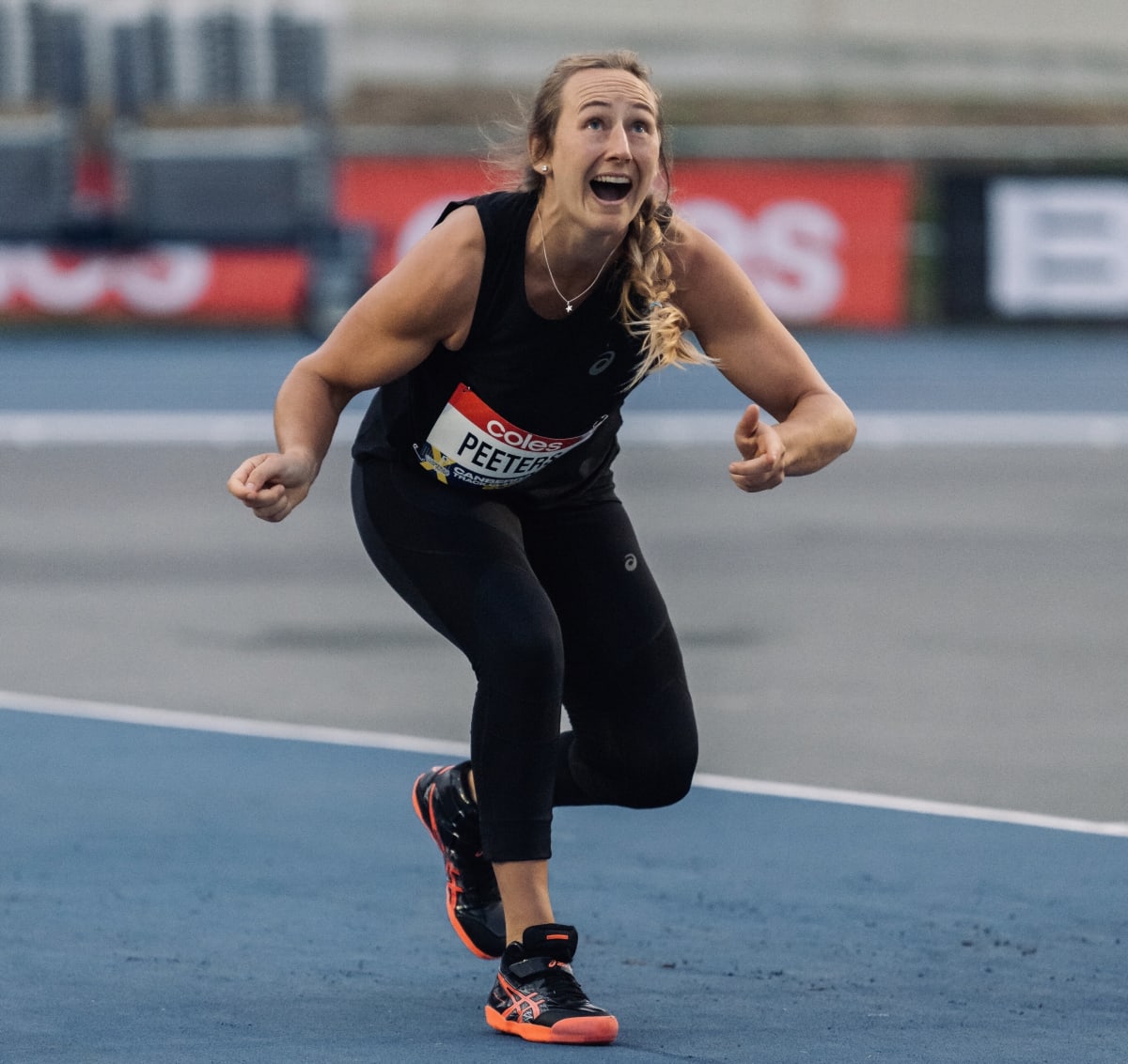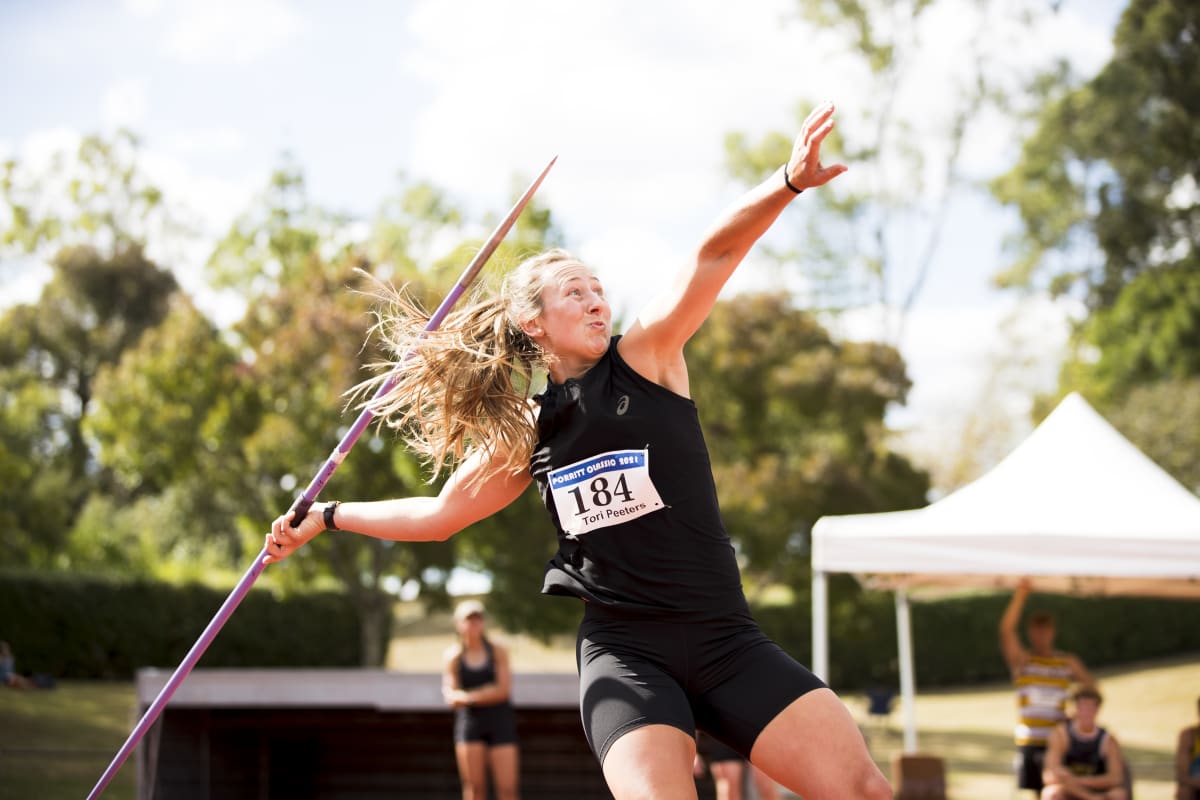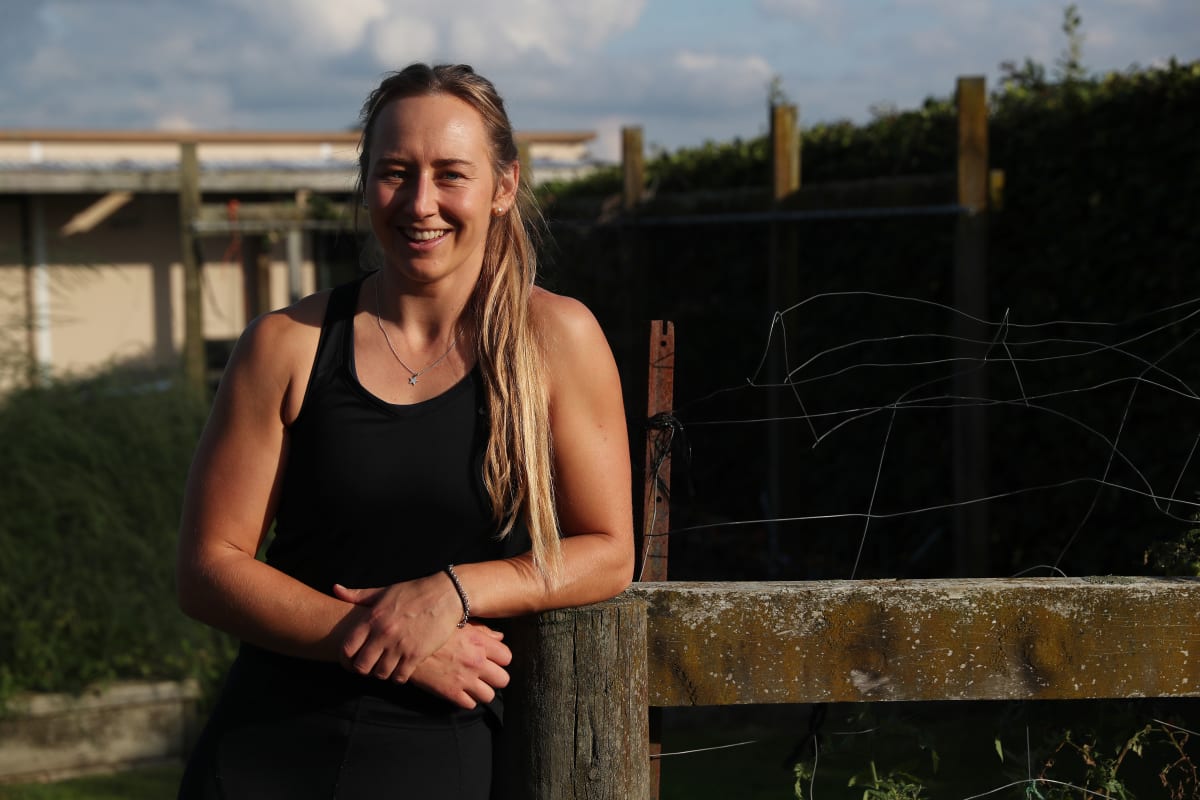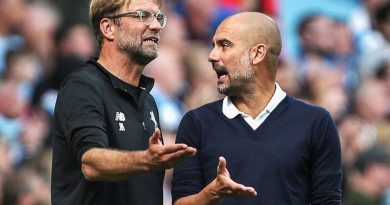Tori Peeters Overcomes the Blow of Olympic No-Go
LockerRoom Series
NZ javelin champion Tori Peeters has moved through anger and grief at her non-selection for the Tokyo Olympics – knowing she should’ve been there. Now, she tells Angela Walker in our Out into the Open series, she’s made her wellbeing a priority – along with Paris 2024.
Tori Peeters’ jaw is almost on the floor. It’s August 6, 2021, and she’s watching the women’s javelin final at the Tokyo Olympics.
It’s an event she qualified for internationally, but instead, she’s having to watch it on TV back in New Zealand. She can barely disguise her feelings as she stands amongst her workmates at St Peter’s School in Cambridge.
She knows she’s perfectly capable of throwing the distances many of the finalists are producing. Only seven weeks earlier, she’d thrown 60.15m at a meet in Australia, but New Zealand Olympic selectors deemed the distance was not far enough to prove she was capable of a top 16 finish.
On this day in Tokyo, however, that throw would have placed her seventh overall. Her omission from the team feels more shocking than ever right now.
Her colleagues are shocked too, not least that she’s able to stand by and watch. They know how distressing it was for her when she wasn’t selected for the New Zealand team. Viewers nationwide glimpsed her pain when she choked back tears on One News.
Thirty of the 32 javelin throwers who qualified internationally are in Tokyo, competing at these Games. Peeters is one of only two qualifiers not sent to the Games to represent their country.
Peeters’ phone starts to “blow up” with comments she’s heard many times already: “WTF? This is ridiculous. You should be there. This is outrageous.”
Peeters, too, is angry – but a part of her feels reassured. Now she knows, without a shadow of doubt, that she is good enough to compete on the world stage.
The New Zealand record holder since 2014, Peeters can start the process of moving on positively – with Paris 2024 firmly in her sights.
***
Fast-forward three months and Peeters’ winning smile has returned. She’s made wellbeing her priority and her resilience shows.

While the 27-year-old says not getting selected for the New Zealand Olympic team was “absolutely devastating”, she has weathered the storm and prevailed, helped along by the support of friends and family (who’ve nicknamed her Thor).
“My friends reminded me that my worth wasn’t determined by a team selection,” she says.
“I’m still Tori and I can throw 62 metres. And I believe I can throw a lot further than that still.” (Her personal best stands at 62.04m).
Peeters plans to compete throughout the domestic track and field season over the summer. Beyond that, she hopes to get competition experience in Europe before next year’s world athletics championships in Oregon and the Birmingham Commonwealth Games, which are only two weeks apart.
As she looks forward, Peeters knows it would be simpler to brush her Olympic non-selection under the carpet. Plus, it’s not in her nature to make a fuss.
However, she doesn’t want other athletes to go through what she’s endured. She’d like to see future selections prioritise the human being at the other end of the process.
“I’m not really one to make a song and dance,” she says. “But I want to speak up and inspire change, so what happened to me doesn’t happen in the future and people learn from my story. It’s not about me.”
***
Peeters’ selection saga began back in April this year, while she was competing in Australia. At the time, she was officially ranked 24th in the world – a list that extends to 500, such is the competitive nature of athletics globally.
“I was feeling confident and thought, ‘Sweet, I’m sitting pretty’. I certainly wasn’t thinking I wouldn’t be picked because I wasn’t considered top 16 capable,” she says.
Then, 48 hours out from contesting the Australian national championships in Sydney, Peeters received a phone call advising her she’d been selected for the New Zealand Olympic Games team – but with a condition. She’d have to throw 62m by the end of the month.
“I thought, ‘What the hell? Where’s this come from?’ The Aussie nationals were about to be my last comp over there and I had an MIQ spot booked back in New Zealand in five days’ time. And there weren’t any more comps back home.”
Overwhelmed by the sudden pressure of having to match her personal best at short notice, or forgo her Olympic dream, Peeters struggled mentally to prepare for such a high stakes event.

In the meantime, a 15-strong athletics team for the Games was publicly announced back in New Zealand, with Tori Peeters’ name clearly on the list.
In a cruel twist of fate, none of the countless people who’d inundated Peeters’ phone with messages of congratulations had read the sentence near the bottom of the press release saying (only) Peeters’ selection was subject to a condition.
“Everyone was congratulating me that I was going to be an Olympian,” Peeters says. “Yet here I was getting ready for my last chance to be selected.
“How the hell do you even concentrate? I was over there on my own, without my coach, staying at an Airbnb.
“I just cried that whole day because it was all so overwhelming. That was the most difficult thing I think I’ve ever dealt with.”
Peeters says she felt like she’d been set up to fail and, as such, wasn’t able to produce the requisite 62m in Sydney that week.
When she returned to New Zealand, she and her support team launched an appeal.
“We appealed for less distance and more time. Having crunched the numbers, we provided detailed analysis based on pinnacle competitions to show that it was really 60 metres that indicated top 16,” Peeters says.
“But I was told, ‘No, we’ll give you until the end of June and you can have only these three competitions [back in Australia] to throw 62 metres – or throw 61.50 metres at two events’. There was zero consideration given to the impact of weather conditions.”
Javelin – Peeters explains – is an event where results can vary dramatically depending on the wind. “What if all three of the competitions took place in heavy rain or massive headwinds where no-one could throw near their best?” she says.
The next challenge was redesigning Peeters’ training programme, which until now had been geared towards peaking in Tokyo in August.
“If you look at the timeline and how you periodise an athlete, there was much that wasn’t taken into consideration. I’d just done a competition season in New Zealand and Australia, performed well, had a little peak and was home to have a rest and train. I was exhausted physically and a mess emotionally,” she says.
“The appeal process and trying to wrap my head around all the legal stuff had been stressful. I felt as sick as a dog for a couple of days because I was so nervous and wound up. It was an awful feeling.
“Suddenly I had to prepare to compete again and hit my PB. I went straight to Gus [strength and conditioning coach Angus Ross] and said: ‘Is this physically possible?’”
Reassured of her capability by Ross and her coach Debbie Strange, they made a plan to get her ready to compete again in Australia.
Before long, things were tracking really well. “My training throws were unbelievable,” Peeters says. “Deb said it was the best she’d ever seen me throw, and so we felt quite good.”
On the Gold Coast, at the first of the three competitions, Peeters says she didn’t manage to “connect technically on a few things”, plus the conditions were far from ideal.
“Everyone was a good five metres down on their throwing which showed the conditions weren’t favourable.”
Then, while training for the second competition, Peeters suffered a serious back spasm. “It came on all of a sudden. To be honest I think it probably came on from stress.”
Barely able to walk, Peeters had no option but to miss the second competition.
“I was getting physio every day, buying turmeric, having all sorts of things. Literally clutching at straws to get better so I could throw,” she says.
Still unable to train before the final competition in Townsville, Peeters began to worry she’d risk long-term damage if she competed.
“I’ve only got one body, and I worried I could ruin it for life because of one competition to make the Olympics,” she says.
With the assistance of a sports chiropractor, who was also a javelin coach, Peeters managed to rehabilitate sufficiently to have a final shot.
“In Townsville, I threw into the most outrageous headwind I’ve ever thrown into, so I was stunned to reach 60 metres – twice. I was the only competitor in those conditions to throw anywhere near my PB.”
But 60m into a headwind wasn’t considered enough – and Peeters’ Olympic selection journey came to a sad end.

While dealing with the intense disappointment, Peeters found it heart-warming to hear from some of the world’s best javelin throwers – headed for Tokyo – who’d heard of her plight.
“They actually sent messages saying: ‘Hey what’s happened is awful. We’re really gutted you’re not coming over to compete. We’d been looking forward to competing against you’,” she says.
***
Reflecting on her journey, Peeters is convinced there are lessons to be gleaned from her story. She’d like to see selection processes “more orientated around the wellbeing of the athlete, especially when they are still competing to try and cement their selection”.
She’d also like to see the unique nature of an event taken into consideration, such as the dramatic influence weather can have on javelin results.
New Zealand’s longstanding selection policy requiring evidence of a top 16 finish has left many Kiwi athletes bitterly disappointed over the years – especially since most countries don’t create tougher requirements but simply send athletes who have qualified internationally.
In the case of Tori Peeters, not only did she have to demonstrate she was capable of a top 16 finish, she had to do so with a prescribed metric of 62m – that turned out in Tokyo to equate to top six.
“New Zealand selection policies shouldn’t belittle athletes when they have actually done enough to qualify by international standards,” Peeters says.
Selection into teams is a subject sport sociologists and psychologists have investigated, some noting the dehumanising and often unpredictable nature of it and its impact on athlete welfare.
Their research, like Peeters’ story, suggests athletes could sometimes be better supported during and after the selection process, whatever the outcome is.
“Yes, it’s high performance sport and you obviously need to be able to perform to a high level,” Peeters says, “but we are humans first.”


